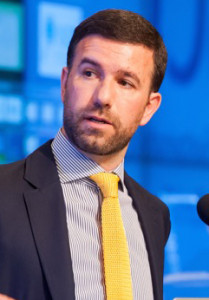Deforestation is still happening, and at an alarming rate. Although the Amazon region is less affected by soy cultivation, areas such as the Cerrado, Atlantic Forest, Gran Chaco are still vulnerable to high rates of deforestation. Soy is the commodity with the largest share (40% – Henders et al. 2015) of deforestation embedded in exports compared to production. In the EU, soy accounts for almost half (47%) of imported deforestation.
Last October, 23 global companies, including Ahold Delhaize, Marks & Spencer, METRO, Tesco, McDonald’s, Unilever and Walmart responded to the Cerrado Manifesto, a call for action by companies and investors in defence of Brazil’s Cerrado, from civil society stakeholders. The Cerrado, is a global biodiversity hotspot that is also critical for carbon storage and rainfall, and thus Brazil’s agricultural productivity, but is suffering high rates of deforestation and native vegetation loss. The companies’ response was to sign a Statement of Support (SoS) committing them to work with local and international stakeholders to halt deforestation and native vegetation loss in the Cerrado. Since October, they have been engaging more widely and on 25th January announced a near tripling of the number of signatories to 62 companies.
This larger group of companies, all who use Brazilian soy or cattle in their supply chain, have signed the SoS with an immediate priority to develop a roadmap and implementation plan to deliver on their aims and objectives. The full press release is available here .
They welcome all companies, whatever size and location, to join them and to become a signatory to the SoS.
Quote from Ignacio Gavilan, Environmental Sustainability Director:
“I am very happy to see that the speed of work on soy is really picking up. Many of the manifesto signatories are CGF members, who actively take part in our Working Group on soy, which works to implement strategies to reduce deforestations through responsible sourcing of soy. We are also exploring an alternative approach where companies can focus their collective efforts on working with local and international stakeholders to launch projects on the ground”.

